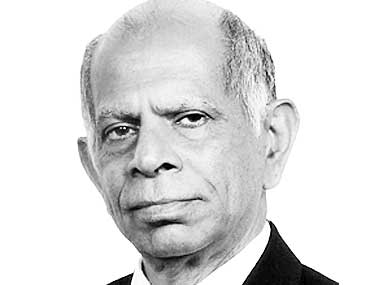Egypt, once the uncontested leader of the Arab world under President Gamal Abdel Nasser (1954-70), remains one of the most important countries in the Arab world and in Africa. Obviously, what happens to Egypt is important and a matter of concern to the international community.
Official Egypt has celebrated with industriously choreographed éclat the 30th June Revolution of 2013 that paved the way to the military coup of 3rd July. Let us recall the historical background to this Revolution.
In January 2011 the Arab Spring dawned in Tunisia felling President Zine El Abidine Ben Ali, in power since 1987. When President Hosni Mubarak of Egypt fell in February, this writer was among those who enthusiastically recalled the immortal lines of poet Wordsworth, 21, in Paris in 1791:
But to be young was very heaven…
As we watched Egypt’s military overthrow President Morsi in July 2013, the only democratically elected leader in Egypt’s history, it was painfully clear that we were wrong in our assessment. It appeared that Mubarak resigned in response to the thunder from Tahrir (Liberation) Square. In reality, the Supreme Council of Armed Forces (SCAF) had ‘invited’ him to resign. It departed from protocol by holding a meeting without the President’s chairing it. It came out with a communique asserting that it was with the people in Tahrir.
The SCAF, contrary to its repeated pledges, had no intention of taking Egypt to a democratic destination. It entered into an opportunistic alliance with the Muslim Brotherhood, the strongest and the best organized political force in Egypt. Thereafter, the SCAF played a cynical Machiavellian game with the politically naïve Brotherhood. When it was obvious that the Brotherhood’s Morsi was going to be elected President, the SCAF, as leader of the ‘Deep State’, got the National Assembly, where the Brotherhood had majority, dissolved by the court. The ‘Deep State’ has ‘attendant lords’: the higher judiciary, the higher bureaucracy, the Mukhabarat (the Intelligence and Security), and the corporate barons who thrived under Mubarak, including the media barons.
Morsi was president only nominally. The police did not obey him. They either disappeared from the scene causing a breakdown of law and order, or they acted with uncalled for cruelty, in order to make Morsi unpopular. Following the killing of 16 security men in August 2012 by armed men in Sinai, Morsi replaced the Defence Minister Tantawi with El Sisi. Little did Morsi know then that later the same El Sisi would topple him. El Sisi had a reputation for being a pious Muslim and he took care to appear obsequious before Morsi.
Contemporary historiography of Egypt remains fiercely contested. A school of thought holds Morsi entirely responsible for his fall. Another holds that the military always wanted to grab political power held by it since the 1952 Revolution. A civilian as President was unacceptable and Morsi was a temporary aberration to be corrected as early as convenient. This writer supports the view of the second school. It is not the case that Morsi was faultless, but his faults do not sufficiently account for his fall.
The ‘Deep State’ took a decision shortly after Morsi’s’ inauguration that he should be toppled within a year or so. Their crafty machinations including the threat to dissolve the body drafting the new Constitution worked, and Morsi put out orders arrogating to himself undue ‘Pharaonic’ powers.
By April 2013, a group of five young Egyptians, hitherto unknown, announced the formation of Tamarod (Rebellion), secretly begotten by the ‘Deep State’. When Tamarod announced later that it had collected 22 million signatures demanding Morsi to step down, none from the media or elsewhere bothered to check the veracity thereof.
The 30th June 2013 saw demonstrations in response to the appeal of Tamarod in Cairo and elsewhere. The Reuters reported that 14 million demonstrated quoting the military, but without cross-checking. Subsequent investigations by the eminent journalist Max Blumenthal showed that considering the area of public space and the space required for a person (0.45 sq. meter) the total number could not have been more than 2.8 million. Naguib Sawiris, against whom Morsi government had issued an income tax notice for $2.1 billion, later told the New York Times that he had funded the Tamarod.
On 1st July Defence Minister Sisi gave an ultimatum to Morsi to talk to his political adversaries for a settlement within 48 hours. The adversaries, knowing the military’s plans to intervene, refused to talk. On 3rd July, the military kidnapped Morsi and suspended the Constitution. El Sisi staged a drama by appearing with El Baradei, the Coptic Pope, and Tamarod. El Sisi said he wanted a referendum, but Tamarod demanded that he take over immediately.
The military appointed a judge from the Deep State as President, and later, El Sisi, feigning much resistance, stood for election as President in 2014 winning 98% of votes, true to the Egyptian tradition. The latest is that the cap on two terms has been removed in a suitably engineered referendum and El Sisi can remain in power till 2030.
Under El Sisi, human rights, media freedom, and freedom of association of civil society have been abridged with the government resorting to extra-judicial killings and ‘disappearances’ as pointed out by Amnesty International, Human Rights Watch, and Reporters Without Borders. Al Jazeera’s Mahmoud Hussein is in jail since December 2016, without charges or trial.
El Sisi has support from Saudi Arabia and the U.A.E., who along with Kuwait announced a package of $12 billion immediately after the coup. Obama had his reservations, but Trump admires Sisi as a ‘strong man’.
The economy is in distress, with the Egyptian pound falling to 18 to U.S. $ from 6 under Morsi. In September 2019, 2,000 demonstrated asking Sisi to resign and 4,000 were jailed.
Morsi, falsely charged with offences, and denied medical attention, died in June 2019. The El Sisi coup encouraged Libya’s Haftar to start one. The suppression of the Muslim Brotherhood was a study in a reign of terror. Egypt is farther away from democracy now than under Mubarak.
In short, the Arab Spring was transmogrified a la Kafka to Arab Winter of misery and chaos by and after the El Sisi coup.
The author is about to publish his book: The Arab Spring That Was and Wasn’t.
(The paper is the author’s individual scholastic articulation. The author certifies that the article/paper is original in content, unpublished and it has not been submitted for publication/web upload elsewhere, and that the facts and figures quoted are duly referenced, as needed, and are believed to be correct). (The paper does not necessarily represent the organisational stance... More >>
Image Source: https://cbsnews1.cbsistatic.com/hub/i/2012/06/14/a6b3e9bb-a644-11e2-a3f0-029118418759/egypt_146352328.jpg











Post new comment